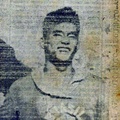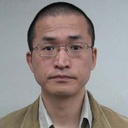
Masayuki Fukasawa
@masayukifukasawaBorn on November 22, 1965, in Numazu City, Shizuoka Prefecture, Japan. In 1992, he went to Brazil for the first time and worked as an intern at Paulista Shimbun (Japanese newspaper in Brazil). In 1995, he went back to Japan and worked with Brazilians at a factory in Oizumi-machi, Gunma Prefecture. He wrote a book, Parallel World (Ushio Publishing) about his experiences there and received Ushio Nonfiction Award in 1999. He returned to Brazil in 1999. Beginning in 2001, he worked at Nikkey Shimbun and became the editor-in-chief in 2004. He has been an editor-in-chief of Diário Brasil Nippou since 2022.
Updated January 2022
Stories from This Author

Judo Film Release on the Eve of World Cup in Soccer Superpower Brazil
June 3, 2014 • Masayuki Fukasawa
In early May, a month before the 2014 World Cup, a judo film called A Grande Vitória (directed by Stefano Capuzzi) was released nationwide in Brazil. It’s a touching story of one juvenile, abandoned by his Italian immigrant father and raised in poverty, who finds a road to success in his encounter with judo. Max Trombini (age 45), the original writer, visited Nikkei Shimbun on May 9 and repeatedly emphasized that “life has its ups and downs.” The film is …
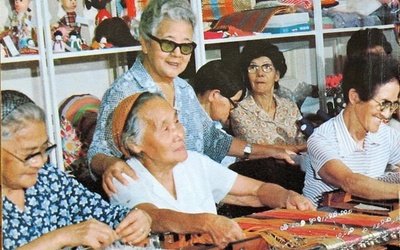
The unknown ties of a famous Brazilian lawyer to Japanese people: Yves Gandra Martins
May 12, 2014 • Masayuki Fukasawa
"I still practice karate every day," said famous lawyer Ives Gandra da Silva Mrtins (79) on April 15th, as he took a chopping stance and said, "I can still break a board." He is not known at all as someone with ties to Japanese culture, so the interview began with a surprising statement.After graduating from the Law School of the prestigious elite University of São Paulo (USP), he built a career as a lawyer while also taking part in political …
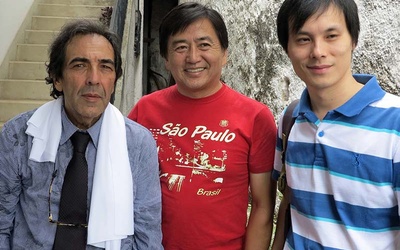
50 Years since the Start of Military Rule and Japanese Activists: Young People Who Struggled Against the Dictatorship - Part 3/3
April 23, 2014 • Masayuki Fukasawa
Read Part 2 >> 437 people tortured to death, missing: Japanese-American activist played key role Just before the ceremony for "50 years since the military coup, eradicating dictatorship," about 20 images of people who had died from torture or gone missing were shown, as if they were sending messages from the afterlife, and the audience was glued to the screen. At the end of the video, four Japanese-American activists were also shown.One of them, Francisco Seiko Okuma (ALN), died in …
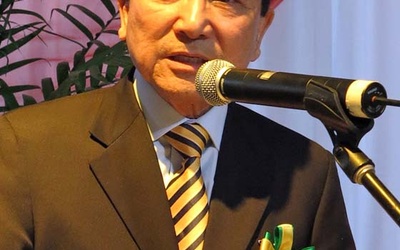
50 Years since the Start of Military Rule and Japanese Activists: Young People Who Struggled Against the Dictatorship - Part 2/3
April 22, 2014 • Masayuki Fukasawa
Read Part 1 >> Military revolution or coup? Many Japanese farmers were anti-Django The month after Miyake Darci was arrested, on February 19, 1972, the United Red Army carried out the Asama Sansou Incident in Karuizawa, Nagano Prefecture, taking hostages and barricading itself inside. It was a season of heated politics.Osamu Toyama (72, Shizuoka Prefecture), who wrote "A Hundred Years of Water" (revised in 2012) from his own unique perspective, read the serial "50 Years Since the Start of Military …
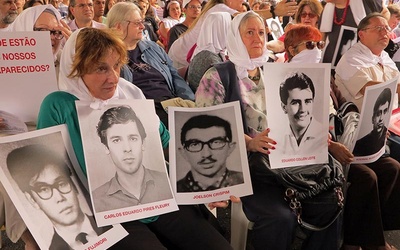
50 Years since the Start of Military Rule and Japanese Activists: Young People Who Struggled Against the Dictatorship - Part 1/3
April 21, 2014 • Masayuki Fukasawa
Miyake Darci, who was involved in guerrilla activities with Marighella and suffered torture A ceremony marking "50 years since the military coup - eradicating dictatorship" was held on March 31 behind Police Precinct 36 in the southern part of the city of Sao Paulo, right in front of a military facility that once gathered and analyzed information through the arrest and torture of left-wing activists. Holding photographs of activists who are still missing and young people who were tortured to …
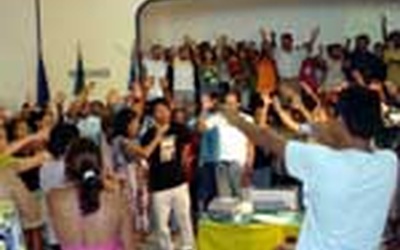
Part 6: Final: Forest agriculture leads to economic stability
Feb. 17, 2009 • Masayuki Fukasawa
>> 5th Making residents "guardians of the environment" In July of this year, HANDS invited a Japanese expert on agro-florestry (forestry farming) from the Tomé Açu settlement in the state of Pará to conduct a seminar that toured the community. The seminar was funded by the Japan Fund for Global Environment (Japan Environmental Restoration and Conservation Agency). At first glance, this doesn't seem to be related to health and hygiene, but Sadamori says seriously, "When residents leave their communities, environmental …
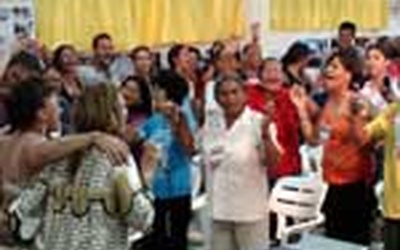
5th Humane Childbirth Seminar
Feb. 10, 2009 • Masayuki Fukasawa
>> 4th Spreading the wisdom of Japanese midwifery "E presiso sabi vier!" (We need to know how to live). Everyone stood up and clapped their hands as they sang the theme song for human childbirth. The atmosphere was lively and energetic, like a self-development seminar or a church mass. The seminar was co-hosted by the Amazonas State Health Department and JICA, but it was far from being a stuffy seminar. This is a scene from the "Second Humane Childbirth Seminar," …
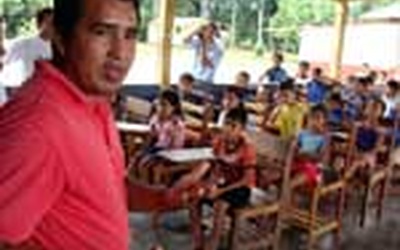
Part 4: Electric cables are the umbilical cord to civilization
Feb. 4, 2009 • Masayuki Fukasawa
>> 3rd Monthly health guidance tours by ship "Bon je a!" The children greeted the group with expressions of pure curiosity. HANDS staff members used a model of the inside of a mouth to teach the children how to use a toothbrush. According to the school's director, Joaquim Cabaucante da Silva (31), who was born in Igarapezinho, there are 56 families and 302 students living here. There are 106 students, most of whom are from overseas. Grazis Cidade Tellis (38), …
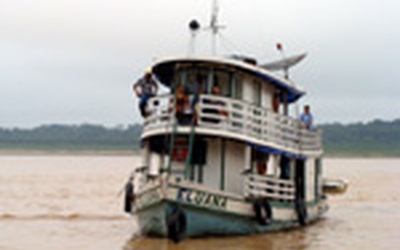
Part 3: The Mayor Gives Up on Education
Jan. 29, 2009 • Masayuki Fukasawa
>> 2nd Providing health guidance through mobile classes "The city budget that the state gives us for such a large area is so small that it's impossible to fully provide for the health and education of our citizens," Mayor Emerson Pedraza de França, who had just been re-elected, said with a frown during lunch with me on October 29th. In areas where even local governments have given up, Sadamori has been working since September 2007 on the "Health Promotion Project …
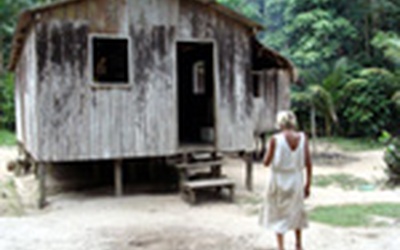
The 2nd Land Island ManiColle
Jan. 22, 2009 • Masayuki Fukasawa
>> 1st Remote areas are semi-self-sufficient After an hour's flight on an 18-seater propeller plane that only flies three times a week, the city of Manicole suddenly appeared in the middle of the sea of trees. It is nearly 333 kilometers south of Manaus, the capital of Amazonas state, and takes two nights to get there by boat. Of course, there are no roads. Although it is a city, its area is almost the same as the Netherlands, and about …
 We’re looking for stories like yours!
Submit your article, essay, fiction, or poetry to be included in our archive of global Nikkei stories.
Learn More
We’re looking for stories like yours!
Submit your article, essay, fiction, or poetry to be included in our archive of global Nikkei stories.
Learn More
New Site Design
See exciting new changes to Discover Nikkei. Find out what’s new and what’s coming soon! Learn More
Discover Nikkei Updates



See exciting new changes to Discover Nikkei. Find out what’s new and what’s coming soon!




